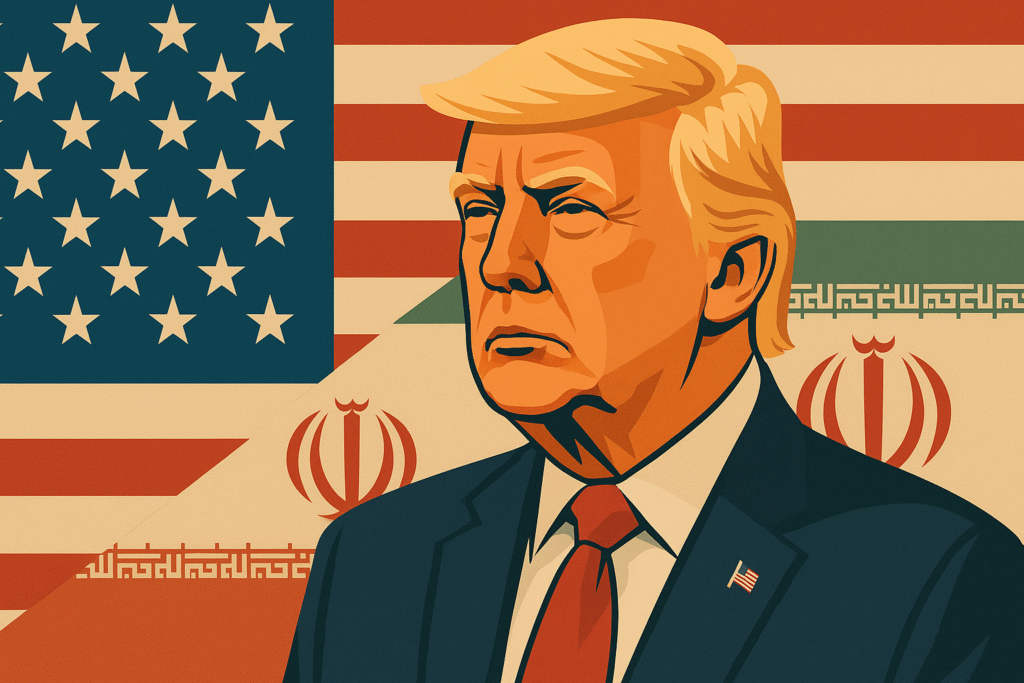U.S. President Donald Trump has signaled a potential shift toward diplomacy amid growing tensions between Iran and Israel, stating that discussions with Tehran could resume “in the near future.” At the same time, he has postponed a decision on whether the U.S. will support Israeli military operations against Iran for up to two weeks.
The announcement, made on Thursday via White House Press Secretary Karoline Leavitt, suggests a pause in the decision-making process despite ongoing regional hostilities and the rapid deployment of U.S. military assets to the Middle East.
“Based on the fact that there’s a substantial chance of negotiations… I will make my decision whether or not to go [to war] within the next two weeks,” Leavitt said, quoting Trump.
She confirmed that communication with Iranian officials continues through U.S. envoy Steve Witkoff, even after a week of missile exchanges between Iran and Israel. The conflict began when Israel launched a surprise attack on Iranian targets, citing the need to dismantle the country’s nuclear capabilities.
U.S. Military Prepares as Diplomacy Persists
The United States has since supported Israel by intercepting incoming Iranian missiles and has increased its military presence in the region. Reports indicate that Trump may be considering airstrikes on Iran’s underground Fordow nuclear facility. However, Trump told reporters earlier this week that the situation was “very big” and that a decision could come in “less than a week.”
Former CIA Director and CENTCOM commander David Petraeus described Trump’s two-week delay as a “good call,” noting it would allow time to position more defensive systems and for the USS Nimitz to redeploy from the Indo-Pacific to the Middle East.
“It’s also reasonable to give diplomacy a last chance,” Petraeus told the Financial Times.
European Diplomacy Underway
Meanwhile, the UK, France, and Germany are leading a diplomatic effort to prevent escalation. Their foreign ministers are set to meet with Iran’s Deputy Foreign Minister Abbas Araghchi in Geneva. The talks revive the “E3” format established to negotiate the 2015 nuclear accord, which Trump withdrew the U.S. from in 2018.
The Geneva meeting aims to create a framework for renewed international inspections of Iran’s nuclear program and to seek a reduction in Tehran’s ballistic missile arsenal.
“Negotiation remains today the only way to achieve a lasting rollback of Iran’s nuclear and ballistic missile programme,” French Foreign Minister Jean-Noël Barrot said.
UK Prime Minister Sir Keir Starmer also urged diplomatic solutions:
“The risk of escalation across the region is obvious. It’s better dealt with by way of negotiations than conflict.”
British Foreign Secretary David Lammy is expected to deliver a direct message from the U.S. to Iran, reiterating that a peaceful resolution remains possible.
Strategic and Political Stakes
While hopes for diplomacy persist, sources close to the negotiations warn that the option of U.S. military action remains “firmly on the table.” Trump’s administration had held five rounds of indirect talks with Iran before Israel’s recent attacks disrupted a planned sixth round.
Israeli Prime Minister Benjamin Netanyahu, who opposes renewed diplomacy, stated that military action was essential to prevent Iran from developing nuclear weapons.
The next two weeks are expected to be critical in determining whether diplomacy or military confrontation defines the next chapter in U.S.-Iran relations.
